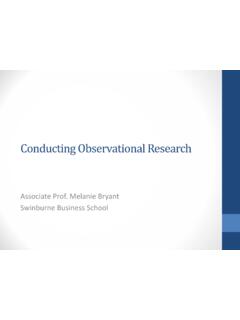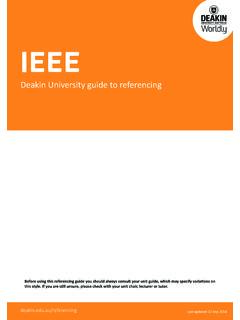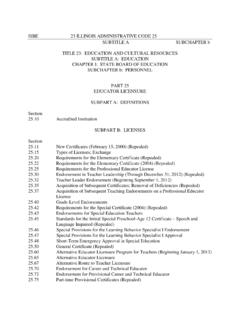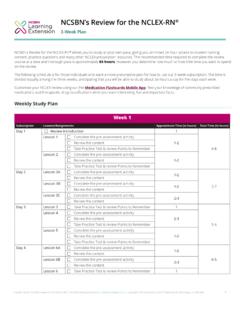Transcription of Time management activity - Deakin University
1 time management activity Part 1 This first activity should give you a good idea of your own time management skills. Instructions: For each set of three statements below, circle the number of the one that best describes you: 1. I like my watch to be set exactly at the correct time . 1. I like my watch to be set a few minutes ahead of the correct time . 3. Most of the time , I don't wear a watch. 1. I tend to arrive at most functions at least 5 minutes early. 1. I tend to arrive at most functions exactly on time . 3. I tend to arrive at most functions a little late. 1. In the course of my daily activities I tend to walk and talk quite fast. 2. In the course of my daily activities I tend to take my time . 3. In the course of my daily activities I tend to walk and talk quite slowly. 1. In high school I almost always complete my assignments. 2.
2 In high school I usually complete my assignments. 3. In high school I often fail to complete my assignments. 1. I rarely spend more than 15 minutes at a time on my mobile. 2. I sometimes spend more than 15 minutes at a time on my mobile. 3. I often spend more than 15 minutes at a time on my mobile. 1. I like to finish assignments and reports with a little time to spare. 2. I like to finish assignments and reports exactly on their due dates. 3. I sometimes finish assignments and reports a little late. 1. I rarely spend more than an hour eating a meal. 2. I sometimes spend more than an hour eating a meal. 3. I usually spend more than an hour eating a meal. 1. I never watch more than 1 1/2 hours of TV on a weeknight. 2. I sometimes watch more than 1 1/2 hours of TV on a weeknight. 3. I usually watch more than 1 1/2 hours of TV on a weeknight.
3 1. I never spend more than an hour on the internet surfing or chatting at any one time . 2. I sometimes spend more than an hour on the internet surfing or chatting at one time . 3. I usually spend more than an hour on the internet surfing or chatting at one time . Now add up the numbers that you have circled _____. Last updated June 2013. Deakin University CRICOS Provider Code 00113B. 1. The higher the total, the more you need to work on time management skills now that you are in VCE. If your total is more than 10, you probably need to adjust your priorities and begin to take more responsibility for managing your time . If you scored more than 10, be sure to do Part 2!! From Michigan Tech, Part 2 If you scored more than 10 in Part 1, this exercise will help you to really look at how you spend your time and provide a practical way for you to start taking charge of managing your time more successfully.
4 Each week has 168 hours (24 hours X 7 days). Analyse how much time you spend in an average week on sleep, leisure, meals, chores, exercise, transportation, work, family responsibilities, classes and studying. Look at the following example of a time analysis: Hours per activity in a seven-day week Sleep 56 hours Leisure/free time 8 hours Meals 14 hours Chores 5 hours Exercise 5 hours Transportation 5 hours Work 15 hours Family 5 hours Classes 30 hours Studying 15 hours Total 150 hours In this example, 158 of the 168 hours a week are committed, leaving 10 hours of flexible time . Flexible time is important so you can deal with unexpected pleasant events such as being given tickets to a concert, or unpleasant events such as getting sick. Without flexible time , you may find it difficult to catch up those hours you lose when you are sick.
5 Also, sometimes things take longer than you anticipated. With flexible time , you can catch up with your textbook reading even though your assignment takes longer than you expect. Make sure you have enough flexible time to easily juggle commitments and avoid stress caused by a too tightly planned schedule. Without this time , you may not be able to keep working towards your goals, and you may have to re-examine them, prioritse them and postpone the less important. Now complete your own time analysis. How much flexible time do you have? Use the table on the next page to do your analysis. Last updated June 2013. Deakin University CRICOS Provider Code 00113B. 2. activity Hours per week Sleep Leisure/free time Meals Chores Exercise Transportation Work Family Classes Studying Total Adapted from From Michigan Tech, Last updated June 2013. Deakin University CRICOS Provider Code 00113B.
6 3.











